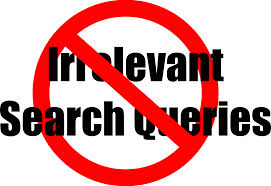Vanity SEO
What is it and why you need to understand it.
 If you’ve done any research into search engine optimisation for your dental practice, you may have come across the phrase “vanity SEO” or more specifically “vanity keywords”.
If you’ve done any research into search engine optimisation for your dental practice, you may have come across the phrase “vanity SEO” or more specifically “vanity keywords”.
Whilst this may sound like a technical term and perhaps not particularly interesting, the topic it refers to is extremely important and can be the difference between success and failure for a web optimisation campaign.
In a nutshell, vanity SEO refers to chasing the wrong keywords and particularly ones which may sound really useful, but actually deliver relatively little traffic or traffic which is not very targeted and unlikely to result in new patients enquiries.
A few examples
Let’s take a look at a few examples of vanity keywords which may surprise you. Also the alternatives which should be included in any well-thought-out dental SEO campaign.
A real example from a dentist who joined us recently, concerned an optimisation campaign which had been run for him but which had resulted in very limited success. His SEO company had chosen a list of keywords which, to a layperson, looked very useful but in reality missed the mark by some way. The keywords had targeted county phrases i.e. dentist Kent, cosmetic dentist Kent and so forth and the SEO work had achieved rankings in the top half of page one. Very good you may think but in reality, the success from the campaign was very limited. Not only was the traffic increase as measured in Analytics really quite small, but the conversions were also very light too. Relatively few people were actually searching these generic terms and those who were, weren’t really delivering targeted enquiries. Only when the dentist started to dig in to the data and actually correlate this with what he was seeing at the practice, did he realise that what looked good in his monthly performance report, actually didn’t really help at all.
So chasing these types of vanity keywords may feel good but often don’t add a great deal of value.
Which keywords should you pursue?
This will obviously vary based on which treatment(s) you are keen to promote, so for example you may have a campaign skewed heavily towards dental implants or orthodontics. However, for general dental searches, it’s important to realise that most people will search for either “dentist” or “dentist location” plus variants of that. Similarly with the cosmetic phrases, emergency phrases, NHS phrases and so on. Not many will broaden their search to “dentist + county” despite what you may think. The thing which is foremost in the mind of those searching for dental services is “dentist” and the town which they live in. Those who have done some research will enter specific treatment terms such as “dental implants plus location” and it is these types of “longer tail” terms which can convert better as they are more targeted and done with more intent.
This is also why you need to understand the importance of local SEO and prioritise it. Those searchers (most of us are lazy) who simply enter the word “dentist” in their search box, will be presented with a list of their local businesses – so for example if you lived in Chelmsford, you would be presented with dentists based there and not those based in Basildon; at least in the prominent ‘3 pack’ results which appear on page one near the top of the page. A search campaign targeted on your town, rather than on broader county based phrases is going to serve you better here.
Summary
When your marketing company flatters you and recommends that you go for county based searches or other broad terms which may sound great, please stop and think carefully if this is really going to be beneficial. Or is it just appealing to vanity? Understand the importance of local search intent and what users are more likely to type into Google when they are searching for dentists in their immediate locality. Once you’ve gained prominence for these local terms, then you may wish to broaden out to target other adjacent locations and ultimately, perhaps, county terms too. But be sure to get the priority right.
If you need help with your own dental practice SEO, whether starting from scratch or to validate an existing campaign, please call the Dental Media website marketing team on 01332 672548 and we’ll be pleased to provide clear and accurate advice.
